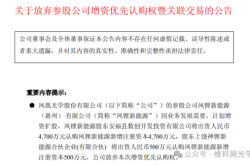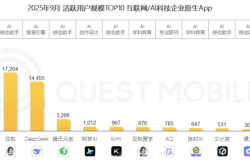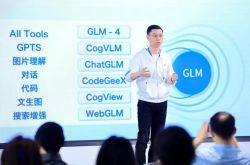Can't afford Zhang Xuefeng's 18,000 yuan service? Is the 98 yuan AI volunteer assistant reliable?
![]() 07/03 2024
07/03 2024
![]() 618
618
In an increasingly competitive environment, college application consulting has become a booming business.
How profitable is this business? Zhang Xuefeng's college application service, priced at over 10,000 yuan, sold 20,000 copies in just 3 hours, with sales exceeding 200 million yuan.
Compared to Zhang Xuefeng's expensive services, AI-assisted college application is much more affordable. Both Baidu and Kuake have launched free AI college application products, while Douyin offers a 98 yuan smart card for college application. Even the most expensive reliable AI "VIP Diamond Card for College Application" costs only 1/9 of Zhang Xuefeng's "Dream Card".
With both free and low-cost options, AI-assisted college application has gained immense popularity. According to Baidu's official data, on June 25 alone, over 10 million users utilized Baidu's AI volunteer assistant, indicating that over 80% of candidates used AI to fill out their college applications.
So, is the much-hyped AI-assisted college application actually useful? Could AI potentially replace the likes of Zhang Xuefeng in the future?
/ 01 / Intuitive Admission Probability, Significant Improvement in Application Efficiency
Currently, many major companies like Alibaba and Baidu have deployed AI college application services and launched a series of AI products for college application, including AI chatbots, AI planners, AI one-click application, and AI intelligent school selection.
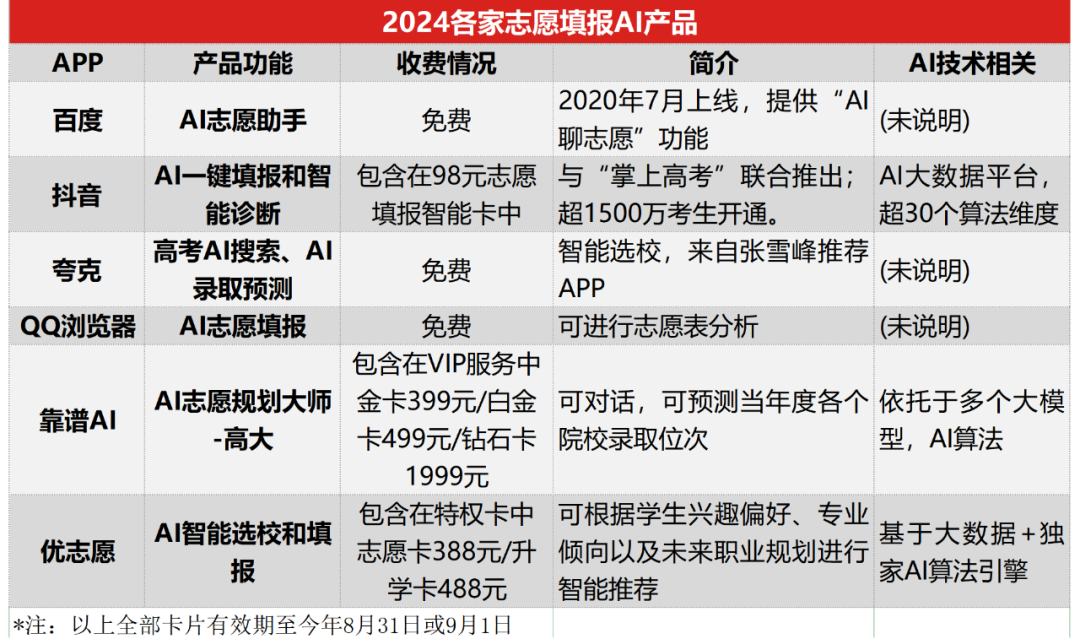
Amidst the swarm of parents in live streaming rooms, Zhang Xuefeng promotes his 18,000 yuan college application course while also advocating for AI. "The students in our team directly use AI to create a large table. You can select 'major priority' in AI and lock in the major!"
Aren't you afraid that AI will take your job? Out of curiosity about AI college application, I tried one of the products - Kuake College Application.
When I entered the scores of a candidate, Xia A (601 points in Hebei Province, majoring in physics, chemistry, and politics) into Kuake, the system recommended 37 "reachable" universities and 416 "reachable" majors. Among them, the admission probability for the recommended majors and universities ranged from 20% to 60%, with a high probability of over 80% for stable options and mostly 99% for guaranteed options.
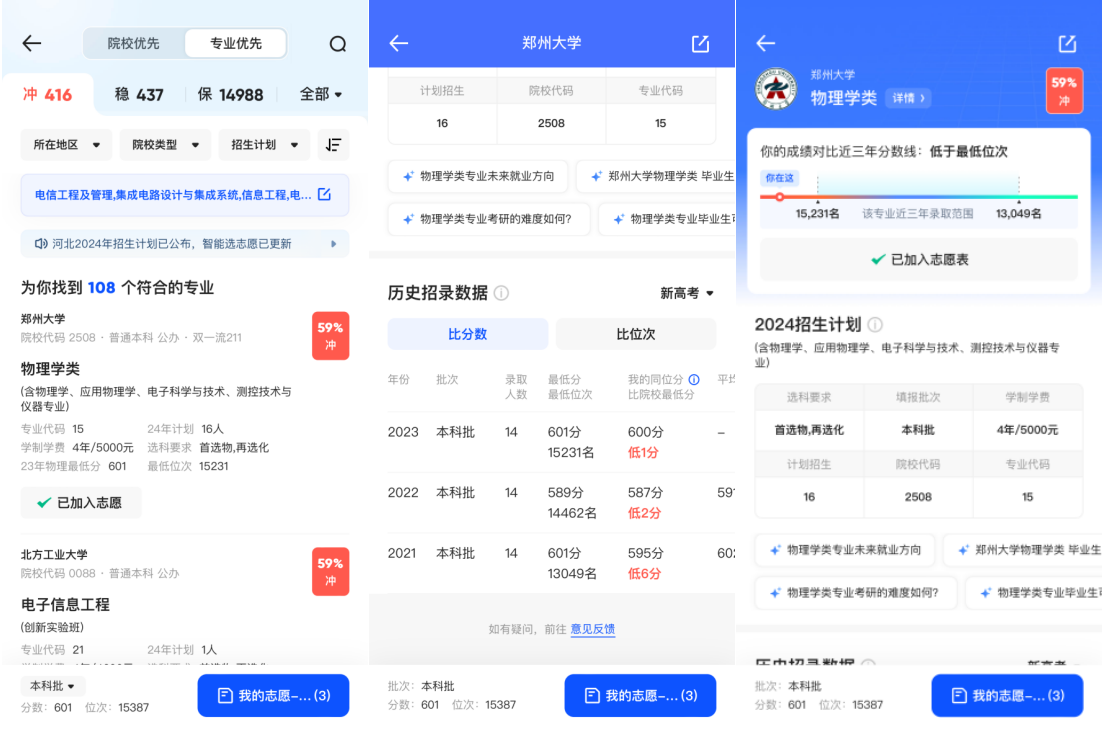
▲ College application suggestions for Xia A in Kuake
Under "major priority," users can select their preferred majors and receive recommended universities from Kuake. For example, when I selected 20 science and engineering majors, Kuake recommended 108 options that matched my criteria. The top three recommendations were for majors in Physics at Zhengzhou University, Electronic Information Engineering at North China University of Technology, and Information Engineering at Nanjing University of Information Science and Technology.
It's worth noting that the score I entered was 601 points, which barely met the minimum admission scores of these recommended universities in 2023. However, the "lowest rank" for these three recommended universities in 2023 was higher than Xia A's rank. This means that if Xia A followed the AI's suggestions blindly, there's a high chance they won't be admitted to these desired universities.

▲ In Kuake, Xia A selected 20 majors under "major priority" and received recommendations
I tried several AI college application software, including Douyin, Baidu, and Youzhiyuan, and found that entering the same candidate information yielded different recommendations from different software. I also experimented with high, medium, and low score ranges and discovered that AI products provided similar suggestions for high and low score ranges, but produced completely different results for the medium score range with the same keywords.
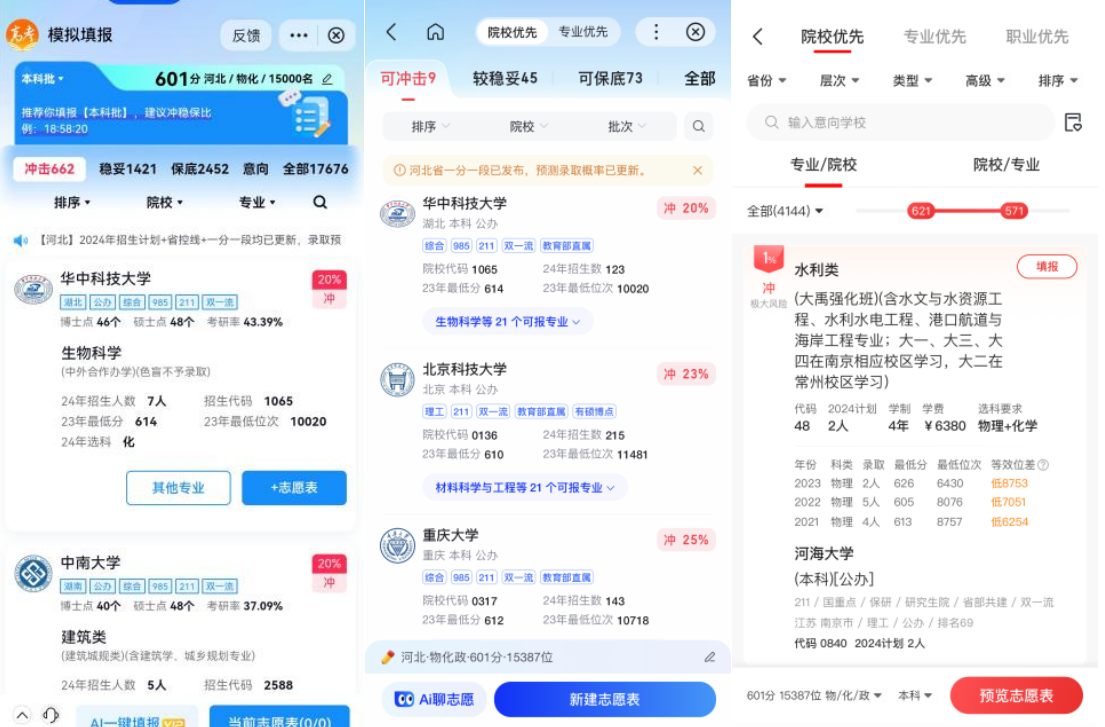
▲ AI college application pages for Douyin's Zhanshang Gaokao, Baidu, and Youzhiyuan
Most AI products can generate college application plans with one click based on the scores, interests, and preferences entered by users. Some products offer special features like AI volunteer assistants and AI robots that can predict the admission ranks of various universities in 2024. For example, Reliable AI's AI volunteer planner - Gao Da Prediction estimates that the first-tier physical science score line in Hebei Province this year will range from 492 to 498, while the historical first-tier score line will range from 495 to 507.
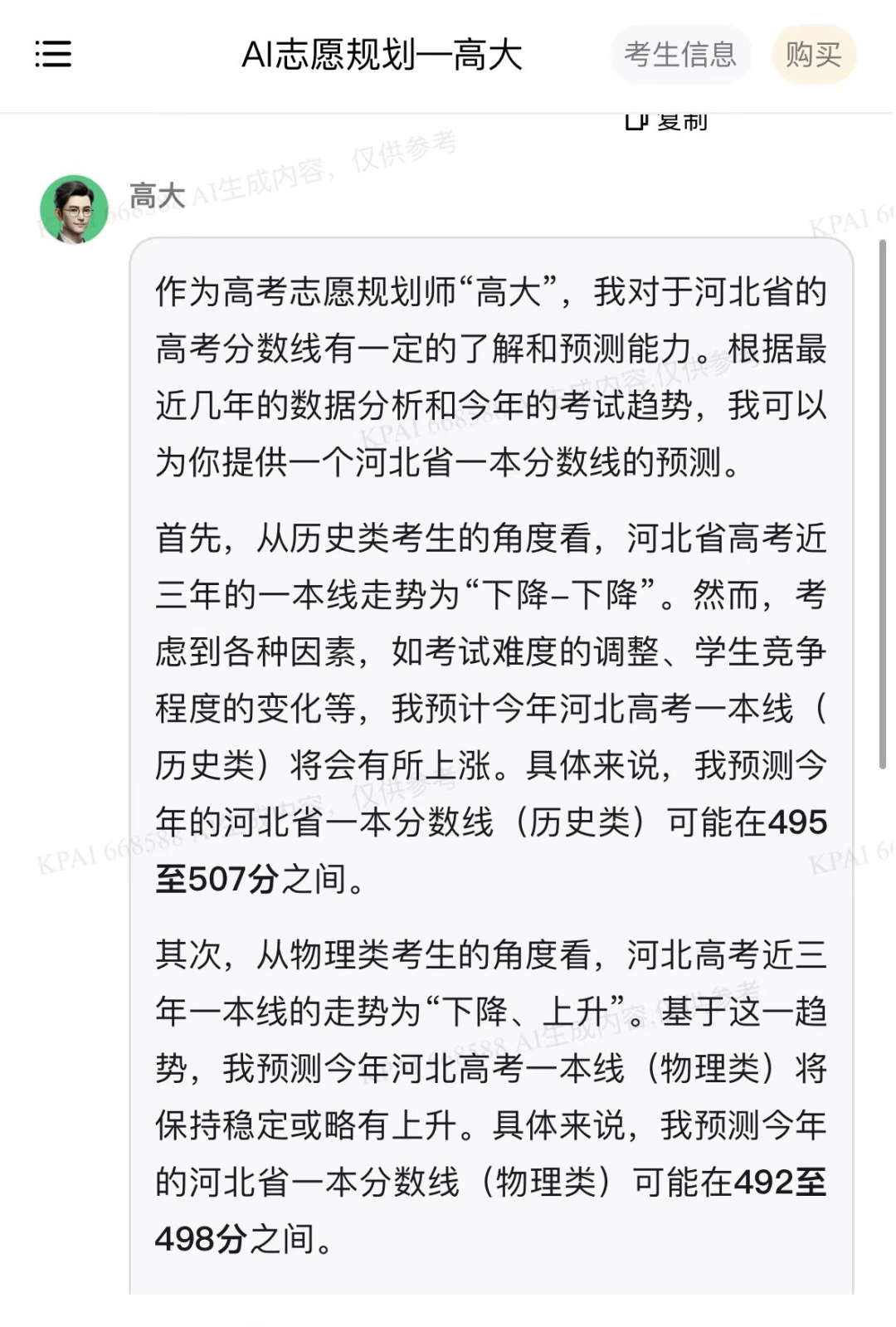
▲ Reliable AI's AI volunteer planner - Gao Da Prediction for the first-tier score line in Hebei Province this year
By adding some specific information, AI college application software can comprehensively analyze the expansion and contraction of universities with similar score lines. Compared to flipping through application books, AI can directly calculate the probability of admission to a specific university, making it very intuitive.
Overall, I'm quite satisfied with AI-assisted college application. Zhang Xuefeng profits from information gaps, but now with AI, ordinary candidate families can solve the problem of difficulty in accessing vast amounts of information. They have the opportunity to comprehensively grasp information about all universities, majors, and future employment trends, narrowing information gaps and improving the speed and efficiency of candidate applications.
/ 02 / AI Addresses Basic Needs, Personalized Needs Still to be Met
Zhang Xuefeng, who "earned 200 million in 3 hours," is unlikely to become a thing of the past so soon. Although AI-assisted college application can significantly improve the efficiency of candidates' applications, it does not mean that it can truly replace Zhang Xuefeng.
At least for now, AI-assisted college application and Zhang Xuefeng's services are two differentiated options.
The uniqueness of internet celebrities like Zhang Xuefeng lies in the fact that they are a powerful and flexible source of information. They can provide insights into the differences and rules of various majors in terms of employment and civil service exams. Sometimes, they even share so-called "inside information" and ultimately recommend majors that align with candidates' career planning based on factors like gender, family situation, and interests.
For example, in a live streaming session, Zhang Xuefeng answered the following for candidate Xia A based on their scores: ① recommendations for science and engineering majors and accounting majors in 211 universities; ② differences between business administration, financial management, and accounting majors; ③ how to choose between accounting, finance, and economics majors; ④ whether to prioritize university ranking or major when filling out college applications as a science student. These are specific questions faced by candidates.
However, many candidate families who lack in-depth understanding of university majors don't know what majors are available in different universities or even what majors they prefer. In such cases, Zhang Xuefeng directs candidates' needs for initial screening to AI. Not only Zhang Xuefeng but also many other internet celebrity mentors are promoting AI college application.
AI can effectively help people address the need for initial screening of majors and universities. Taking Kuake as an example, all its simulated college application functions are free. The app displays information on various majors at universities over the past four years and predicts admission possibilities.
In terms of pricing, Baidu and Kuake offer completely free AI college application products, while Douyin, Youzhiyuan, and Reliable AI include AI features in privilege cards. The cheapest of these cards is the smart card for college application jointly offered by Douyin and Zhanshang Gaokao, priced at only 98 yuan. The most expensive is Reliable AI's "VIP Diamond Card for College Application," priced at 1999 yuan, which is still only 1/9 of Zhang Xuefeng's "Dream Card" price.
Regardless of the specific AI college application software, the underlying logic of AI college application products on the market generally utilizes AI big data and AI algorithms to make intelligent predictions based on the analysis of past college entrance examination data.
It's worth noting that candidate families need to use AI tools rationally and verify the information sources of AI search engines that are not traceable. Companies providing AI college application software mostly clean and mine data based on publicly available information from past college entrance examinations and then make probabilistic predictions based on big data. However, in this process, there may be illusions created by AI.
Both AI and consulting with professional mentors are merely tools to assist candidates and their families. Those using these tools should have a clear understanding and not cede all decision-making power to AI or other institutions.


